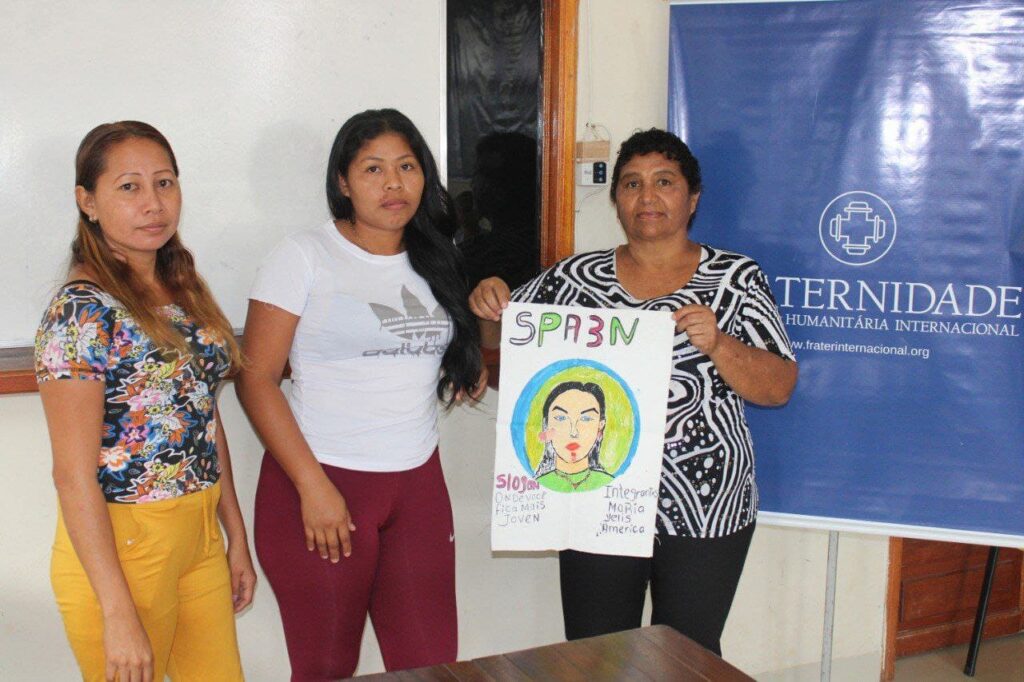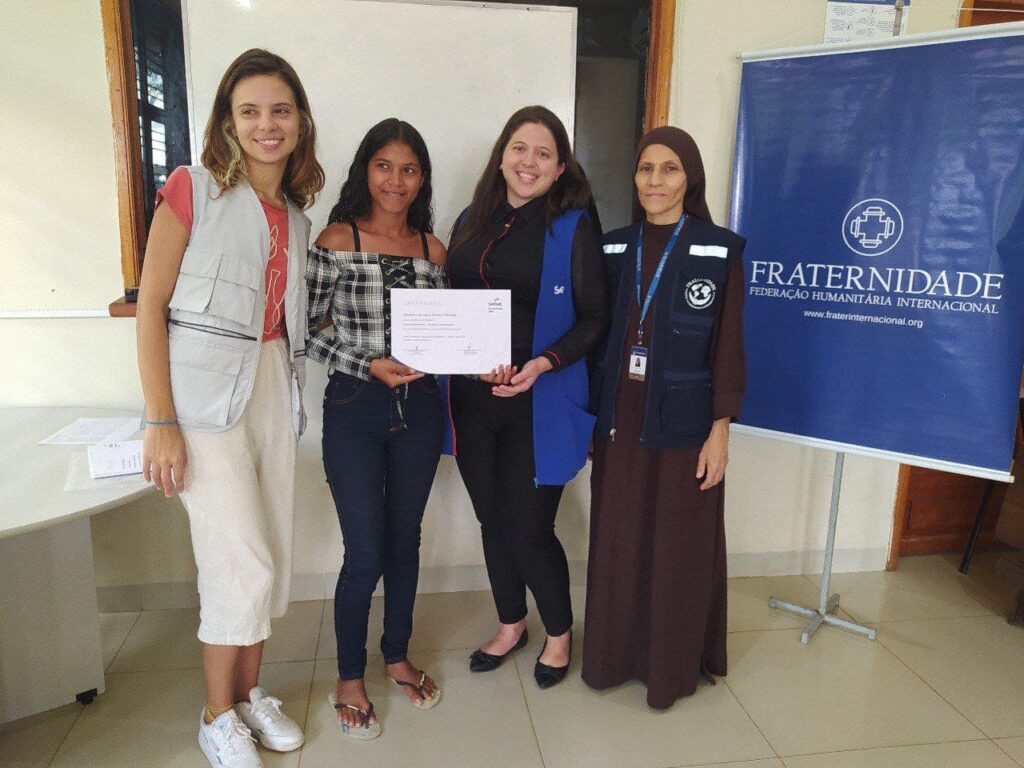The Fraternity – International Humanitarian Missions (FIHM), in collaboration with UN Women, has been carrying out, since March, a series of free courses aimed at empowering indigenous women. These training courses, which cover different areas such as confectionery, baking, entrepreneurship, sewing and hair cutting, aim to provide indigenous women with the necessary skills to develop their own businesses and promote their economic autonomy.
It was in this context that the Entrepreneurship Course for indigenous women was born, taught at the Indigenous Cultural and Training Center (CCFI). This initiative is also a response to the concerns expressed by indigenous women themselves, who are very interested and committed to fully preparing themselves for their active incorporation into the productive apparatus of society.

Developing Skills as Entrepreneurs
The Entrepreneurship Course is aimed primarily at indigenous migrant and refugee women from Venezuela, as well as from other regions of Brazil and Guyana.
The content is focused on boosting the creation of a business plan that allows participants to implement their business ideas. The course lasts for two days and comprises 12 lessons, explained the focuser Cíntia Dias, who accompanied the development of the course.
Students receive a comprehensive overview of the aspects needed to start their own business, as well as guidance on the steps to take after the course. Professor Cíntia points out: “The idea is that, at the end of the course, they already know exactly what they need to do before starting, because in the final presentation they should talk about what their next steps will be.”

At the end of the course, future entrepreneurs give a presentation. This activity not only involves developing a complete strategic plan, it also gives them the opportunity to overcome their fears and improve their communication skills as part of the integral learning needed to realize their business ideas.
“The development of entrepreneurial skills will make the participants more suitable for the job market, enabling them to create their own business, to analyze problems, to propose innovative solutions and grow professionally,” highlights the team of humanitarian actors of the Fraternity – International Humanitarian Missions (FIHM).

Expanding horizons
During the development of the content, the students were invited to broaden their perspectives. For example, to consider working as a team, forming business partnerships with colleagues who have similar interests. “Sometimes the company works in partnership, sometimes I don’t have all the resources to set up the company on my own,” teacher Cíntia told them.
Thus, they were also able to work on team plans to verify the feasibility of forming partnerships and also to learn about the steps and implications of this option.

The participants were very interested in entering new areas, in addition to the production and sale of handicrafts typical of their culture. Among the most popular categories were sewing, beauty salons and food.
Based on these interests, it was deemed necessary to dedicate a space to the figure of the Individual Microentrepreneur (MEI) and provide information about SEBRAE, so that each student has the most complete view possible of the existing options in Brazil to successfully implement their project.
Moving forward with confidence and motivation
As the course progressed, the participants deepened their interests and gave shape to their ideas. That’s how students Julianita and Yorgelis decided to focus on developing intimate clothing proposals that respond to the needs of indigenous women, while Gineth Carolay, another future entrepreneur, intends to incorporate indigenous designs into the design of her clothing line. “It was very productive because it gave us the idea of bringing out this gift that we have inside and showing it to society,” said Julianita Tovar, a student from the Warao ethnic group.


The future entrepreneurs are very confident and optimistic about the consolidation of their business projects, as Yorgelis stated: “I feel strengthened and very prepared to undertake a new project after this course, because it nourished me a lot. I have the necessary guidance to move forward with the project and I feel empowered.”
Like the indigenous students, teacher Cíntia made a positive assessment of her students’ progress through this training: “They already have all the steps and know where to look for what they lack. That is why today they are going to present their business plans, showing the maturation of their idea. An entrepreneurial project cannot remain on paper, it needs to mature,” concluded Cíntia.
“We saw that there is a generalized feeling of overcoming difficulties, for having managed to take the course despite the difficulties that arose. They also expressed that they felt valued and included for having this opportunity, as it is usually the men who are seen as an entrepreneur.” This feeling of equality and non-discrimination was an emphasis that the team from the Fraternity – Humanitarian Missions (FIHM) observed among the participants.
Initiatives with transformative power
These programs are an inspiring example of how entrepreneurship can be a positive force in the social and economic transformation of Indigenous communities, empowering women and generating lasting impact.
Future Indigenous entrepreneurs are ready to take the next steps towards starting their own businesses, with a solid knowledge base and the confidence to face the challenges of the business world.






